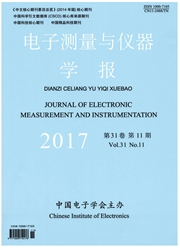

 中文摘要:
中文摘要:
在有限样本下判别模型对训练样本敏感,易导致分类器学习结果泛化性能较弱,产生过拟合现象.针对上述问题,提出一种贝叶斯先验约束下的}昆合判别方法.通过在判别计算中引人生成先验分析,构建生成与判别模型在决策层的混合求解框架.该方法采用不同质分类器进行分类预测,并通过定义有效的融合机制进行样本筛选和标签决策,自动扩展训练集以更新模型,弥补训练样本信息的不完全性.有限样本下的场景分类实验结果表明,相比经典算法,该模型能够挖掘出具有高度判别特性的样本,从而进行有效的模型更新,纠正前期由于样本分布不均而导致的错分样本标签,提升场景分类精度.
 英文摘要:
英文摘要:
The discriminative models are sensitive to limited training samples, which usually has poor generalization performances and is easily over-fitting. A hybrid discriminative approach with Bayesian prior constraints is proposed to solve this issue. By introducing the generative prior analysis into the discriminative approach, a complementary learning structure is built to fuse different classification results. The different types of classifiers are trained separately, and an effective fusion decision is defined to obtain the most confident testing samples along with the estimated labels. By enlarging the training set automatically, the model is updated to make up for the incomplete distribution information of training samples. The experimental results show that compared with the classical methods, the proposed approach can effectively update the model by figuring out the discriminating samples and correct the misclassifications caused by the uneven distribution of limited samples. It can improve the performances of scene categorization.
 同期刊论文项目
同期刊论文项目
 同项目期刊论文
同项目期刊论文
 期刊信息
期刊信息
